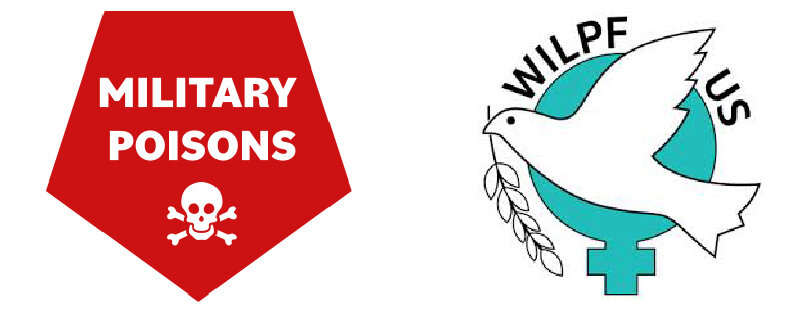Proposed Policies
Safer States provides the most current proposed and adopted legislation on toxins. On the map, click on Vermont and open up the pages with proposed and adopted legislation. You can track each bill through the entire legislative process.
H.152: Prohibits the manufacture, sale, and distribution of apparel, cookware, paper products, and pesticides containing PFAS by 2024. Prohibits the manufacture, sale, and distribution of cosmetic products containing certain chemicals and chemical classes by 2026. Prohibits the manufacture, sale, and distribution of all products containing PFAS by 2030.
S.D.S.25: Prohibit the manufacture, sale, and distribution of cosmetic and menstrual products containing certain chemicals and chemical classes. Prohibits the manufacture, sale, and distribution in Vermont of textiles containing perfluoroalkyl and polyfluoroalkyl substances. Prohibits the installation of any new athletic turf field containing perfluoroalkyl and polyfluoroalkyl substances.
S.82: Establishes a committee to study the impacts of PFAS in leachate from landfills.
H.421: Requires the Secretary of Natural Resources to amend the Department of Environmental Conservation’s Water Supply Rule to establish a maximum contaminant level of zero parts per trillion for the following PFAS substances: perfluorooctanoic acid, perfluorooctane sulfonic acid, perfluorohexane sulfonic acid, perfluorononanoic acid, perfluoroheptanoic acid, and perfluorodecanoic acid.
H.422: Establishes a committee to study the impacts of perfluoroalkyl and polyfluoroalkyl substances in leachate from landfills.
H.50: Prohibits the labeling of consumer products that contain PFAS as compostable.
H.494: Appropriations bill. Includes $1 million for PFAS technical assistance and $5 million forstatewide PFAS groundwater remediation.
Adopted Regulations
S 261: Bans phthalates from children’s products, and specifies that they can’t be replaced with known or possible carcinogens. (Adopted in 2008)
S 239: Establishes a process for identifying chemicals of high concern; prohibits sale or distribution of consumer products containing priority chemicals. (Adopted in 2014)
S 247: Bans BPA from formula and baby food jars, as well as all reusable food and beverage containers. (Adopted in 2010)
S 55: Creates Interagency Committee on Chemical Management and empowers it to list chemicals of high concern and restrict the sale or require labeling of products containing those chemicals. (Adopted in 2019)
S 92: Requires schools to purchase and use green cleaning products. (Adopted in 2012)
S 20: An act relating to restrictions on perfluoroalkyl and polyfluoroalkyl substances and other chemicals of concern in consumer products. (Adopted in 2021)
S 152: Bans the manufacture and sale of any children’s product containing lead. (Adopted in 2008)
S 77: Requires manufacturers to implement and fund a system for the collection and recycling of electronic devices containing lead, mercury, and other hazardous substances. (Adopted in 2010)
H 515: Prohibits the disposal of mercury-added products in a solid waste landfill or combustor. Requires any contractor who replaces a mercury containing thermostat from a building to deliver it to an appropriate collection location for recycling. Requires manufacturers who have sold mercury thermostats to submit a plan for a collection and financial incentive program for mercury thermostats. Restricts the sale of mercury-containing thermostats. (Adopted in 2008)
Vt. Stat. Ann. tit. 10 §§ 7101-7115: Restricts the sale of mercury-added novelties, thermostats, thermometers, or elemental mercury, mercury switches and relays. Requires labeling on all mercury-added products sold. Prohibits the disposal of mercury-added products as solid waste. Requires a motor vehicle recycler to remove mercury-added vehicle switches prior to crushing, shredding, or other scrap metal processing. Prohibits elemental mercury, chemicals containing mercury or mercury compounds, or mercury-added measuring devices for the use in schools. Requires an amalgam separator system to be installed in dental offices. Requires hospitals to submit a mercury reduction plan. (Adopted in 2005)
S 34: Requires manufacturers of mercury-containing lamps implement a collection and disposal program. (Adopted in 2011)
S 10: Creates liability and penalties for contaminating water supplies with perfluorinated chemicals. (Adopted in 2017)
H 740: Appropriations bill. Includes allocating $420,000 for the purchase of laboratory equipment to test for PFAS in drinking water to support public health testing requirements. (Adopted in 2022)
H.145: Appropriations bill. Provides $3 million to the Department of Environmental Conservation for PFAS remediation. (Adopted in 2023)
H 446: Requires state department to conduct a study on microplastics and PFAS in food packaging and food waste. (Adopted in 2022)
S 49: Sets Maximum Contaminant Levels for 5 PFAS chemicals in water of 20ppt each and cumulatively, requires testing for PFAS chemicals, and requires landfills to treat leachate to remove PFAS chemicals. (Adopted in 2019)
S.73: Requires the Director of the Division of Fire Safety to submit a report on the projected cost for the state to fund cancer screenings for all career and volunteer firefighters and replace all personal protective equipment. (Adopted in 2023)
H 955: Appropriates $550k to improve public water systems contaminated with PFAS, and $50k to reimburse schools with contaminated water who must utilize alternate water supplies. (Adopted in 2020)
S 113: Establishes a cause of action for medical monitoring expenses. (Adopted in 2022)
H.67: Requires manufacturers of household products containing hazardous substances to implement an approved collection plan. (Adopted in 2023)
S 81: Bans the flame retardants OctaBDE and PentaBDE from all products, bans the sale of mattresses and furniture with decaBDE, and bans Tris (TCEP & TDCPP) from children’s products and furniture. (Adopted in 2013)
H 444 / S 109: Bans the flame retardants octaBDE and pentaBDE from all products, and decaBDE from certain home products (mattresses and pads, residential furniture, televisions and computers). Prohibits a manufacturer from replacing decaBDE with a known or suspected carcinogen, or a chemical identified by the U.S. EPA as causing birth defects, hormone disruption, or harm to reproduction or development. (Adopted in 2009)
Vermont Governmental Departments, Regulations, and Lawsuits
Meetings
The Vermont project currently meets by zoom. If you would like to join us, please click on the link below to sign up for our email listserv.





